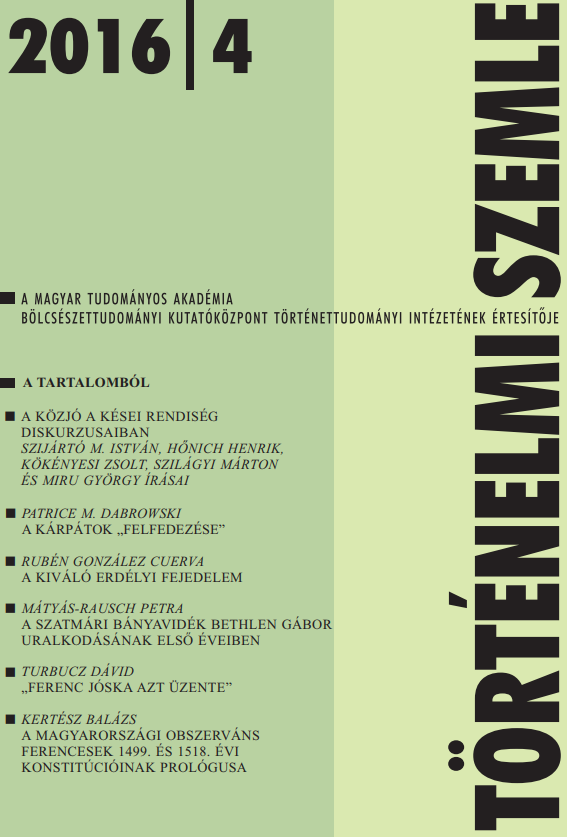Közlekedéssel kapcsolatos javaslatok az 1828–1830. évi országos bizottság kereskedelmi munkálatában
Traffic-Related Proposals in the Commercial Elaborations of the National Committee of 1828–1830
Author(s): Adrienn KapitánySubject(s): Economic history, 19th Century
Published by: Magyar Tudományos Akadémia Bölcsészettudományi Kutatóközpont Történettudományi Intézet
Keywords: Traffic-Related Proposals; Commercial Elaborations; National Committee; 1828–1830;
Summary/Abstract: The paper examines the traffic-related legal proposals of the commercial elaborations prepared by the national committee that operated between 1828 and 1830. While the elaborations, which were regarded by contemporaries as one of the most important, raised attention primarily on account of the problem of customs, despite evident lacunae, also the articles concerned with traffic contained important and modern ideas (such as the regulation of appropriation, or the abolition of the exemptions of the privileged estates from toll-paying on roads and bridges). The issues touched on by the proposals were manifold: the country’s road network, river regulations, construction of canals, drainage of marshland, regulation of carrying trade, and sea shipping. Yet the most important articles concern the financial resources that would make all these activities possible: the establishment of a public fund (fundus publicus) through a voluntary proposal made by the diet – that is, with the financial participation of the estates –, the customs, and the construction of such roads, bridges and, potentially, railways, in the framework of private enterprise, for the use of which all would be obliged to pay without regards to social status. Thus, traffic-related proposals appeared in the elaborations not merely as an economic problem, but, indicating an awareness of the necessity to introduce noble contribution and curtail the tax burden of the peasantry, they also prudently articulated some elements of social reform. Moreover, the planned parliamentary supervision of both the monetary funds and the development works would have been an important political result, for the diet’s competences would thereby have extended to areas that were controlled by the royal Lieutenancy (consilium locumtenentiale) and Chamber (camera Hungarica) without the involvement of the estates. Although the elaborations were never entirely adopted by the diet’s agenda, they were nevertheless instrumental in the enactment by the diet of 1832–1836 of some important traffic-related laws: several chief elements in the articles on the Chain Bridge, the private enterprises and appropriation already appear in the elaborations, and their influence is clearly tangible in some of the laws enacted by the later diets as well. That in such questions the diet came to a relatively rapid consensus was accounted for by the fact that its members were already well-versed in the relevant sections of the elaborations, and thus arrived to the diet sufficiently prepared.
Journal: Történelmi Szemle
- Issue Year: 2016
- Issue No: 04
- Page Range: 615-641
- Page Count: 27
- Language: Hungarian

